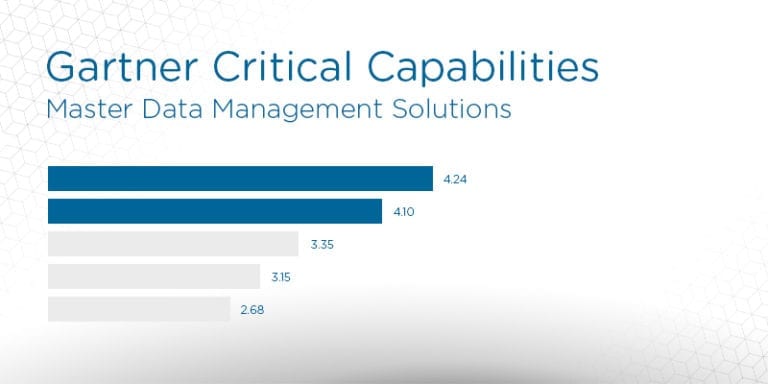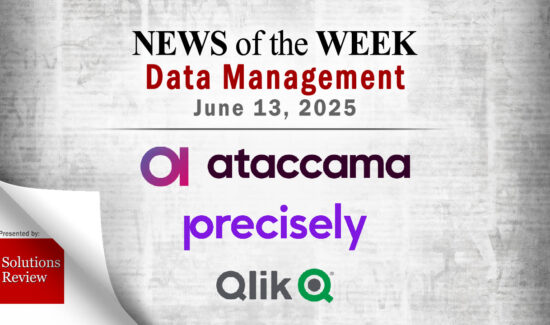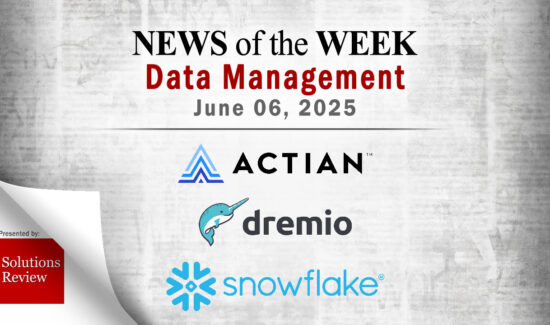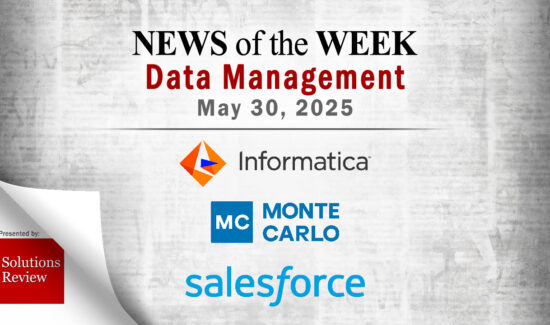Key Takeaways: 2020 Gartner Critical Capabilities for Master Data Management Solutions


Analyst house Gartner, Inc. recently released its 2020 Critical Capabilities for Master Data Management Solutions. Used in conjunction with the Magic Quadrant, Critical Capabilities is an additional resource which can assist buyers of data and analytics solutions in finding the products that fit best in their organizations.
Gartner defines Critical capabilities as “attributes that differentiate products/services in a class in terms of their quality and performance.” Gartner rates each vendor’s product or service on a five-point (five points being best) scale in terms of how well it delivers each capability. Critical Capabilities reports include comparison graphs for each use case, along with in-depth descriptions of each solution based on the various points of comparison.
The study highlights 13 vendors Gartner considers most significant in this software sector and evaluates them against 12 critical capabilities and six use cases prevalent in the space, including:
- B2C customer data
- B2B customer data
- Buy-side product data
- Sell-side product data
- Multidomain MDM
- Multivector MDM
The editors at Solutions Review have read the report, available here, and pulled out three key takeaways.
MDM buyers base product evaluation on performance, cloud connectivity
More than half of all Gartner reference customers polled for this report had deployed a cloud MDM solution, up from one-quarter last year. It is now a recommendation to consider cloud-centric or hybrid features. Respondents identified product capabilities and performance as the two primary concerns when evaluating solution providers, though product roadmap, future vision and cost were also factors. Buyers are also less likely to stick with a provider they’ve worked with in the past. This finding, according to Gartner “should warn vendors against complacency.”
Informatica and Riversand top the charts
Informatica scored the highest in each of the 6 MDM use cases for 2020, while Riversand earned the second-highest point total in all but product or service for the B2C customer data use case. Informatica offers several MDM tools inside Informatica MDM. Its lowest score was for workflow/BPM which was still above average. In contrast, Riversand scored best for workflow/BPM and joint highest for multiple domain and multi domain, data modeling and hierarchy management. Riversand also scored above average for multiple implementation styles and product suite internal integration.
There is (still) no one-size-fits-all product
Gartner recommends that organizations use a “best fit” approach to evaluating master data management software, especially since there is no single provider that offers a fully standalone tool that can satisfy each use case. It may seem like common sense, but data management leaders should first zone in on their most important use cases during the vendor selection process. As Gartner puts it: “Successful MDM implementations start with a single domain and use case.”





















